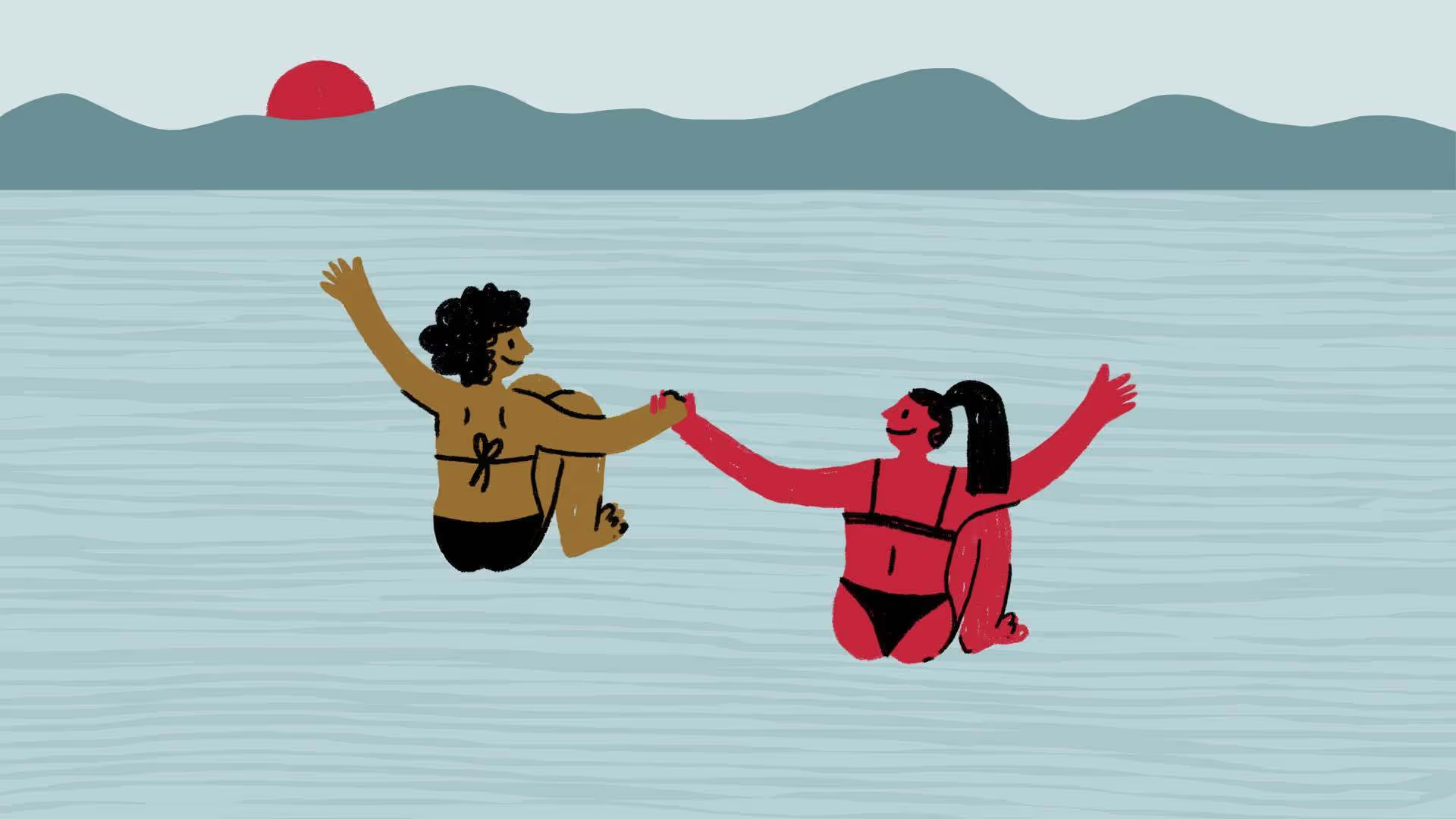Life is a game of risk. From the moment we come into this world to the moment we die, our survival instinct acts as a silent captain navigating every situation we face or desire. And at every step, a subconscious calculation is operating in the background:
- Is this a harmful situation to avoid?
- Will I get hurt?
- Do I want to get hurt?
- Could there be a payoff?
- What if it’s great?
- What if I fail?
Is it worth the risk?
We focus a lot on red flags, particularly while dating and early on in relationships. Often, our ability to recognize a red flag is because we’ve experienced it before. When we’ve dated a few too many narcissists, our eyebrows might perk up if our date is bragging a little too much. If a former partner struggled with substance abuse, we might overly-chastise our new mate for occasionally overindulging. When we’ve had past experiences in which our partner was too needy or we felt too needy, we may find ourselves seeking “situationships” where we don’t have to get deep enough to develop any level of dependence. And when we’ve experienced trauma, we will either try to avoid anything similar—or find ourselves experiencing it over and over again without totally understanding why.
It’s crucially important to look for red flags. But hypervigilance can also leave us feeling constricted and avoidant. How many of us have wanted to run and jump off the dock into new depths of our relationship—only to stop ourselves at the edge because the proverbial water might be too cold, too murky, too mysterious? It’s that mystery that triggers our risk calculations—but it’s also what helps build sustainable desire that allows us to go deeper together over time.
Taking Risks Helps Build Trust Over Time
Over the course of a long partnership, issues can pile up, whether it’s major transgressions or minor mistakes that have compounded. Even small mistakes can be corrosive when they happen again and again. And even when the offending partner is working to heal the wounds, the other partner’s confirmation bias will insist “they’re just going to do it again.” If any of this sounds familiar to you, the last thing you probably want to hear is that it’s on you to open back up to the possibility of being hurt or disappointed again… but taking that risk is the only way to build trust in a possible alternative: that things can be better.
Deep intimacy, as author Eli J. Finkel explained in The All-or-Nothing Marriage, requires some tradeoff between relationship enhancement and self-protection. He asks “are you more willing to let yourself be highly vulnerable in pursuit of deep intimacy, or are you more willing to sacrifice some level of intimacy to avoid being highly vulnerable?” This paradox is also at the heart of the Catch-22 posed by trust researcher Rachel Botsman: Can we take risks without trust? Or is it the act of risk-taking that allows us to develop trust?”
Taking risks is not the same as being reckless. We all need both security and adventure in this life. It’s okay to stop at the edge of the dock and assess the dark waters below… but it’s just as important to take the leap of faith.
Trust Falls—They’re Not Just For Corporate Retreats
Botsman defines trust as “a confident engagement with the unknown.” Trust is the confidence that even if the water is freezing and something bites our toe, we’ll be okay. And if it ends up better than we could have expected, we’ll always remember that day at the lake where we held hands and plunged into the reinvigorating waters together.
In relationships, trust isn’t a promise to never hurt each other. It’s the risk that we will hurt each other and the confidence that, if we do, we will come together to heal. We will support one another. We will be kind. We will have each others’ backs. And it’s not just something that happens because we’ve decided to be together, or to move in, or to say “I do.” Cultivating that level of trust requires millions of micro-risks that show us we’re not foolish for being confident in our relationship. It requires taking risks together that show us our partner isn’t the same as the people from our past who hurt us. Most importantly, trust requires taking risks together that help us grow into better partners for each other. If we let each other fall in the past, it’s going to take a lot of trust falls to show that we're committed now to always catching each other, to really holding each other at our most vulnerable. The worst case scenario is that they drop us so many times that we finally understand we can’t trust them. That’s important to learn, too. But if we don’t take the risk at all, we might never know either way.




.svg)





